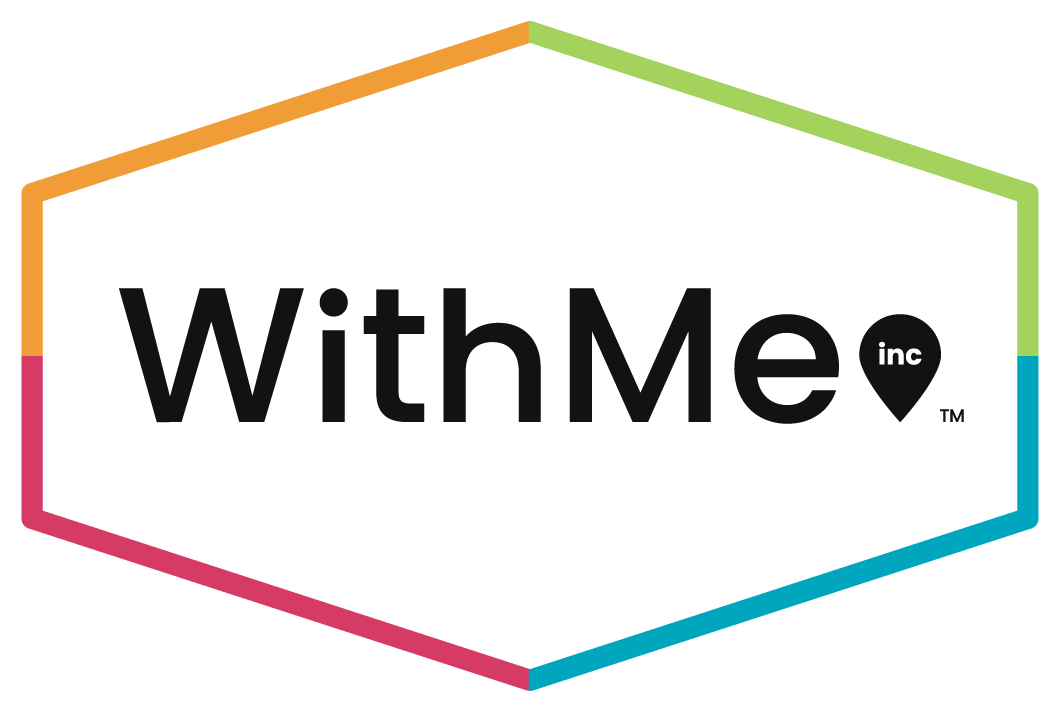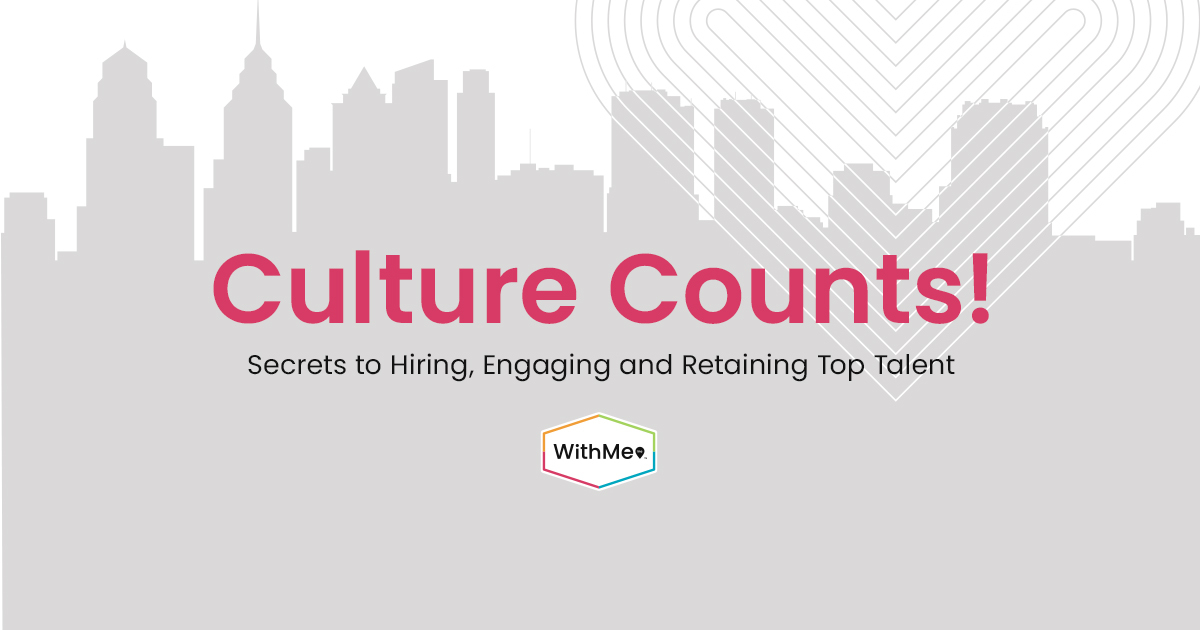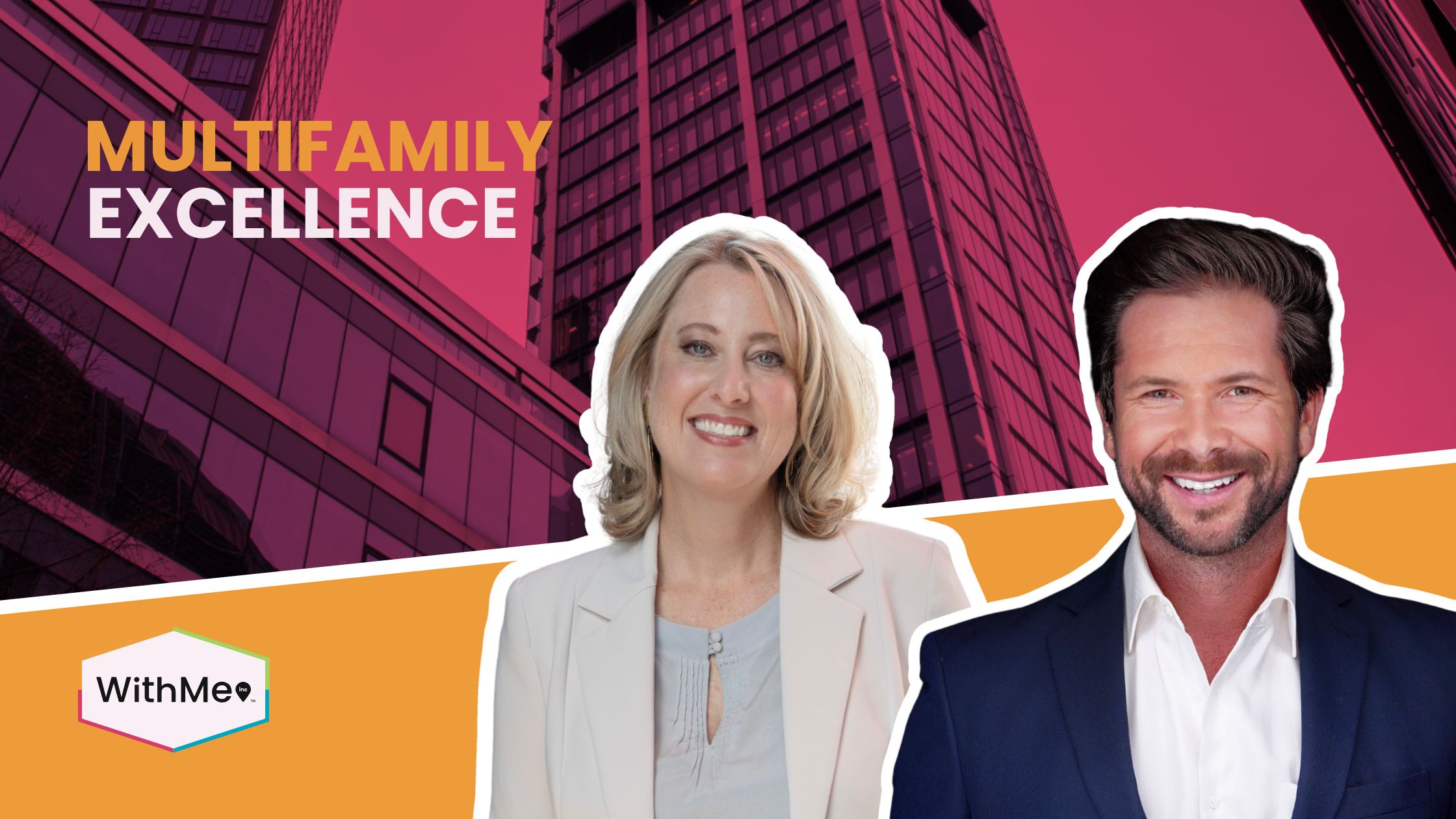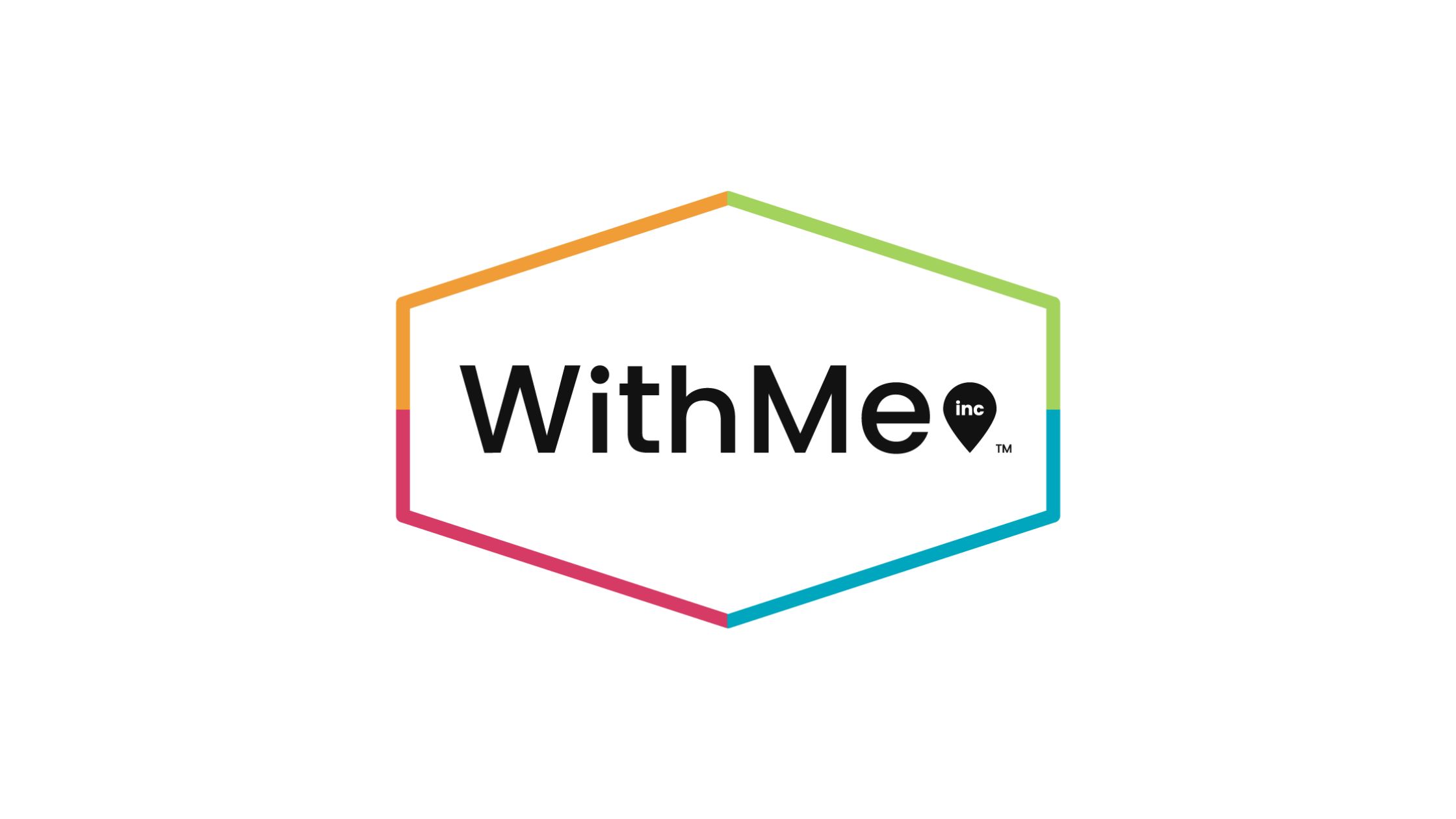WithMe was proud to be the driving force behind one of 90+ amazing educational sessions at Apartmentalize 2024, powered by the National Apartment Association!
For Culture Counts! Secrets to Hiring, Engaging and Retaining Top Talent, we recruited (pun intended) three culture experts to lead a dynamic conversation on cultivating a thriving workplace culture that fosters engagement and retention.
Moderated by our founder and CEO, Jonathan Treble, the interactive panel presentation featured expert insight from David Danish (SVP, Revenue and Marketing at LivCor), Julie Escanilla (SVP, Talent Acquisition at Bozzuto) and Jennifer Novack (Managing Director, Co-Head of Real Assets at Sheffield Haworth).
If you weren’t able to attend, here are a few key takeaways from the enlightening discussion that took place.
In a service-oriented industry, like multifamily, people are the most important asset.
It’s people who deliver on your brand promise, so adequately investing in those people is essential.
At LivCor, that investment is made by proactively looking for ways to develop talent. Leadership works diligently to help team members cultivate skills that support both short- and long-term success. Never assuming they know what motivates their humans or the ways they wish to grow, growth conversations are always two-way and collaborative. Team members who outgrow their roles are encouraged to explore new positions that engage their interest and empower them to succeed.
Clearly defining job expectations and collaboratively developing growth paths can help employees feel seen and valued as individuals. Encouraging employees to explore new roles as they grow helps proactively develop talent.
A magnetic culture starts at the top.
Leaders who prioritize and embody the company's values create a positive, cohesive environment that resonates throughout all levels. By demonstrating commitment to cultural initiatives and consistently communicating the importance of culture, leadership can inspire employees to fully engage and align with the organization's goals. This top-down approach ensures that culture isn't just a set of guidelines but an integral aspect of daily operations, driving productivity, satisfaction, and long-term success.
Culture is a living, breathing essence that has to evolve with people and what matters to them.
The world is constantly changing, and so are the demands of customers and employees. As a result, company culture should be viewed as an ongoing effort rather than a fixed state. Businesses must regularly assess the strengths and weaknesses of their culture and keep a pulse on employee sentiment. Initiatives should be responsive to the feedback and needs of the workplace.
Even though culture should evolve over time, it’s essential to stay true to a set of core values. At Bozzuto, for example, the company’s culture is deeply rooted in the organizational values established at its founding. However, the way these values are expressed and discussed has evolved. The company consistently returns to their "true north," but they communicate it in ways that resonate with current circumstances.
Creating an engaging and inclusive workplace culture requires intentionality and discipline.
The importance of clearly and consistently communicating the company's shared mission and values cannot be overstated.
One effective strategy for achieving this is linking recognition to core values, which encourages team members to embody the company’s principles and perform at their best. WithMe, for example, has implemented a #kudos Slack channel where employees can recognize peers for exemplifying the company’s values. The People Team has even created custom emojis to represent each value, adding a fun and visual element to the recognition process.
On the converse, core values can also be reiterated when providing candid feedback. At LivCor, values are integrated into Performance Improvement Plans (PIPs) to help employees understand how to align with the company’s expectations and cultural standards.
Consistently referencing core values when offering recognition and feedback reinforces their importance in everyday actions and long-term development.
Consider your brand as a place to work - not just a place to live.
In multifamily, organizations are often so focused on building their consumer brand that they neglect to develop an employer brand that nurtures current and future employees.
To attract top talent, organizations should invest in the development of a strong employee value proposition (EVP). The EVP should clearly define, in writing, what makes a workplace unique and what differentiates the employee experience. Most often, the EVP is closely tied to the company culture - that special something that keeps people loyal. However, it it can encompass other standout things as well - business growth, career advancement opportunities, employee benefits, well-being programs, and corporate social responsibility.
This EVP can then be leveraged to create employment marketing campaigns that effectively convey the company culture. A well-designed website and high-quality assets should be part of those campaigns. Top-notch candidates will spend significant time researching a company to determine if it's where they want to invest their time and energy.
No matter how much money or time is invested in building an employer brand, the narrative will never entirely be in your control due to platforms like Glassdoor, where professionals are empowered to candidly and anonymously share their true feelings about employers. As recruitment expert Jeff Hyman emphasizes, you must address internal culture issues before you can recruit rockstars. Generating more positive reviews than negative ones takes time and intentional effort.
Defining your brand as a place to work and understanding how that connects to themes that resonate with your employees can be foundational to company culture, internal messaging and positive employee sentiment. It can also be used externally to convey the employee experience to job seekers, marketing the company as a place to work.
An efficient recruitment process, with clear communication and timely feedback, creates a positive candidate experience and ensures the company attracts the best talent.
A common bottleneck in multifamily recruiting is the interview stage. Hiring managers often find their schedules consumed by addressing owner, resident, vendor and employee concerns.
To streamline this process, it is crucial to predetermine who will conduct the interviews, ideally limiting the number to no more than two people. Securing commitments on turnaround times is also essential. Interviewers should set aside 1-2 hours each week specifically for candidate interviews. This proactive approach enables recruiters to swiftly schedule interviews, maintaining momentum and fostering a positive candidate experience.
Employing a multi-dimensional interview process sets the candidate and the organization up for success from day one.
LivCor’s interview process intentionally exposes candidates to other departments. This approach introduces potential hires to LivCor’s internal diversity of talent, as well as the avenue of opportunities that will be presented to them. Additionally, it helps get buy-in from adjacent departments, and when multiple stakeholders are on board with a hiring decision, it ultimately sets the candidate and the organization up for success from day one.
Understanding and addressing trends in turnover is crucial for retention.
No matter how skilled a recruiting team is at bringing in top talent, organizations will struggle if they can't retain these employees.
That’s why it’s critical to take the time to study and identify trends in turnover. Are specific job families or types of workers experiencing higher attrition rates? Are team members leaving due to poor work-life balance, toxic company culture, or lack of growth opportunities? Would the employee experience improve by upskilling managers to become better people leaders?
Be candid with your existing team members about the turnover trends you discover - and commit to following up. Communicate an action plan and provide updates on your progress at regular intervals.
Diversifying your population requires more than a simple recruiting strategy - it demands a comprehensive approach.
Junior positions, which inherently turn over faster, somewhat naturally diversify. When LivCor committed to diversifying at all levels, they quickly realized that goal was a completely different lift that required extreme intentionality. It’s not just recruiting strategy - it’s where you advertise, the language in the position descriptions, the interview process, responses to answers and the onboarding process. If true diversity is your goal, a comprehensive process has to be devised and executed.
As we wrap up our recap of the "Culture Counts! Secrets to Hiring, Engaging and Retaining Top Talent" session at Apartmentalize 2024, it's clear that cultivating a thriving workplace culture is both an art and a science. Our expert panelists shared invaluable insights into the importance of investing in people, defining and evolving company culture, and creating an engaging environment that supports both personal and professional growth.
From proactively developing talent to ensuring that leadership embodies and communicates core values, the session underscored that a magnetic culture starts at the top and requires continuous effort and adaptation. By staying true to foundational values while responding to the evolving needs of employees, organizations can build a culture that drives engagement, satisfaction and long-term success.
We hope these takeaways inspire you to evaluate and enhance your own workplace culture. Remember, creating an inclusive and thriving environment is a journey that demands intentionality, communication and a commitment to the people who make your organization what it is.




